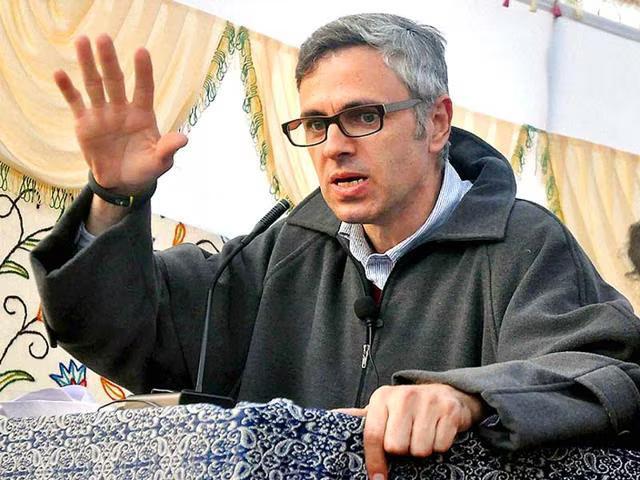
US Doesn’t Care About Any Other Country: J&K CM Omar After Trump-Pak Army Chief Lunch
The recent lunch hosted by US President Donald Trump for Pakistan’s army chief, Asim Munir, has sparked a heated debate globally. The move has been seen as a significant development in the already complex web of relations between the US, Pakistan, and India. While the US has been trying to re-engage with Pakistan to counter the growing influence of China in the region, the decision has been met with criticism from many quarters, including the Chief Minister of Jammu and Kashmir, Omar Abdullah.
In an interview with a leading news channel, Omar Abdullah reacted sharply to the development, stating that the US doesn’t care about any other country’s interests or relationships. “We can’t dictate to the US President whom he should invite for dinner… We used to think the US President was our close friend, and he’d respect that, but the US does what benefits them, they don’t care about any other country,” he said.
Abdullah’s statement reflects the deep-seated frustration and disappointment felt by many in India, particularly in Jammu and Kashmir, over the US’s recent actions. The region has been witness to heightened tensions between India and Pakistan, with both countries accusing each other of ceasefire violations and human rights abuses.
The US’s decision to host the Pakistan army chief has been seen as a clear sign of its willingness to engage with Pakistan despite its questionable record on terrorism and human rights. The move has been criticized by many in India, who feel that the US is not doing enough to pressure Pakistan to crack down on terrorist organizations operating from its soil.
Abdullah’s statement also highlights the perceived imbalance in the US-India relationship. India has been a key strategic partner for the US in the region, and has been a vocal supporter of the US’s efforts to counter the growing influence of China. In return, India has been expecting the US to stand by its side and support its interests in the region.
However, the US’s recent actions suggest that its priorities are shifting. The Trump administration has been focusing on its relations with Pakistan, and has been trying to re-engage with Islamabad to counter the growing influence of China in the region. The decision to host the Pakistan army chief is seen as a significant development in this regard.
The US’s decision has also been seen as a blow to India’s efforts to isolate Pakistan internationally. The Indian government has been trying to persuade other countries to condemn Pakistan’s human rights abuses and support its efforts to combat terrorism. The US’s decision to engage with Pakistan despite its questionable record on terrorism and human rights has weakened India’s position.
Abdullah’s statement also reflects the concerns of many in Jammu and Kashmir who feel that the US is not doing enough to support their cause. The region has been witness to heightened tensions between India and Pakistan, and the US has been criticized for its lack of action to resolve the conflict.
In conclusion, the US’s decision to host the Pakistan army chief has sparked a heated debate globally. While the move has been seen as a significant development in the complex web of relations between the US, Pakistan, and India, it has also been met with criticism from many quarters. The statement of Jammu and Kashmir Chief Minister Omar Abdullah reflects the deep-seated frustration and disappointment felt by many in India, particularly in Jammu and Kashmir, over the US’s recent actions.






